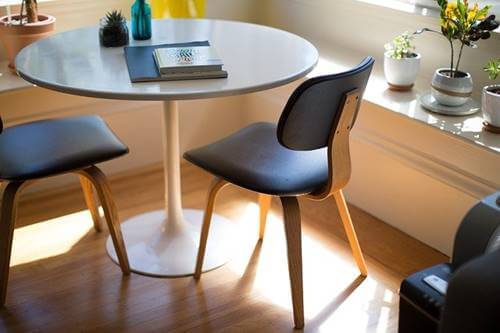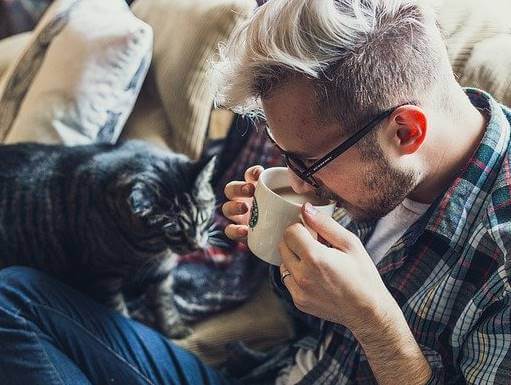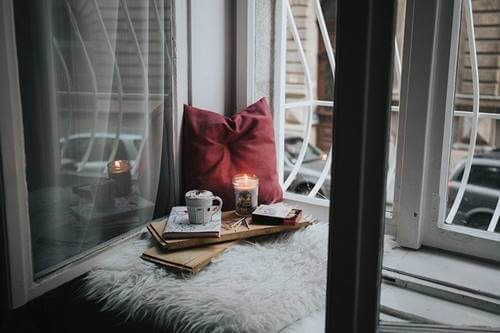Spending Confinement in Small Spaces: A Life between Four Walls


Written and verified by the psychologist Valeria Sabater
Nowadays, there’s an invisible reality many are oblivious to – those people who are spending confinement in small spaces. In these small spaces, time often passes much more slowly. For example, we can’t forget about those who live in a room, students, or tenants who have to share the same space with others.
One thing is clear: the current pandemic is acting as a formidable equalizer in terms of the disease itself and its psychological impact. None of us is immune to coronavirus and many people are experiencing anxiety and uncertainty about the situation and how the world may change in the future.
However, everyone sees the experience from their own individual social circumstances. Everyone watches the world go by from their windows. Some of them are small and embedded in tiny rooms in the middle of our cities. And other houses in narrow streets barely catch a glimpse of the sun.
In stark contrast, others can open their windows and even allow themselves to have breakfast on their balcony. Others can rest and disconnect in their garden. In some countries around the world, people are even allowed to exercise every day.
As you might expect, the impact of confinement will be radically different for a family that lives in a tiny apartment than for those who are allowed to go out or who can at least sit in their garden.

Confinement in small spaces
The impact of confinement in small spaces is obviously not the same in the case of a single person. However, many families are comprised of two parents, their children, and even their pets.
If life under these conditions was already complicated before confinement, it’s even more so now. After all, life’s routines usually kept us away from home for many hours each day.
We’re talking here about work, shopping, school, and leisure time that compensate the time we’ll spend at home between those four walls. Being able to enjoy a social life ensures that everything usually goes smoothly at home.
Confinement in a small space is something that can have a greater psychological effect on young people who share an apartment. Life within the four walls of a room can be very psychologically draining. And cohabitation problems can make things worse.
Thus, after studying these potentially problematic situations, what strategies could you implement to handle them in a better way?
Small spaces, different activities
You have to take an important aspect into account in case if you have to spend confinement in small spaces. You need to diversify the spaces as much as possible and not do all your tasks in the same place. What do we mean by this? Here are some examples:
- You shouldn’t eat your meals on the sofa, in bed, or wherever you watch TV or rest. Instead, you should eat your meals at a table.
- If you have to work at home, don’t do it in the same place where you eat.
- If possible, move the table to another part of the apartment or room (ideally near a window).
The goal here is to distract your mind a little. If you always eat, work, and watch TV at the same place, you’ll feel more pressured, exhausted, and frustrated.
Small spaces should safeguard moments of privacy
Everyone needs some alone time. Therefore, whenever possible, disconnect from the people in your house and either go to your own room or the balcony to read, listen to music, or exercise, among other activities.

Routines: organizing your time helps improve your quality of life
You may not be aware that regulating your time, tasks, leisure time, work, and exercise is very positive for your mental health. Nevertheless, confinement in small spaces also requires a very important strategy: routines.
It doesn’t matter if you’re naturally a more active or passive person or if you’re more into cleaning or doing yoga, reading, or drawing. Doing different activities throughout the day is highly beneficial.
The sun and vitamin D
One of the biggest problems that can occur during confinement in small spaces is the lack of sunlight. Studies such as this one conducted at the University of California, Berkeley, by Drs. William Grant and Henry Lahore highlight that a lack of vitamin D can increase the risk of infection.
It’s dangerous to have a weakened immune system. Therefore, you should try to expose yourself to the sun for 15 to 30 minutes a day. Take advantage of your balcony, windows, or garden if you have access to them. This way, you can increase your vitamin D levels.

Creativity: small spaces full of magic
Small spaces have a lot of potential. Perhaps you can use this confinement to make small changes in your life, habits, or routine.
The goal is to find ways to make your apartment or room a little bit brighter. Also, with a little ingenuity, desire, and creativity, you can create original and attractive spaces in your home.
Sometimes, something as simple as using a sheet to make an Indian tepee can be a lot of fun for children. Remember that the individual charm of a house, apartment, or particular area, however small, is created by its inhabitants.
The goal is to care for your emotions, motivation, health, and dreams to make these days a little more bearable.
All cited sources were thoroughly reviewed by our team to ensure their quality, reliability, currency, and validity. The bibliography of this article was considered reliable and of academic or scientific accuracy.
- Grant, W.B.; Lahore, H.; McDonnell, S.L.; Baggerly, C.A.; French, C.B.; Aliano, J.L.; Bhattoa, H.P. Evidence that Vitamin D Supplementation Could Reduce Risk of Influenza and COVID-19 Infections and Deaths. Nutrients 2020, 12, 988.
This text is provided for informational purposes only and does not replace consultation with a professional. If in doubt, consult your specialist.








